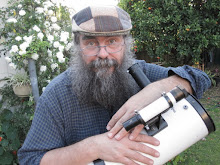Tuesday, November 05, 2024
Thursday November 7 to Thursday November 14
The First Quarter Moon is Saturday November 9. Late on the 8th is a good chance to see the Lunar X in telescopes. In the evening Venus has left the Scorpion with Mercury taking its place. Mercury is close to Antares on the 10th. Venus is close to the Lagoon Nebula on the 13th. On the 11th Saturn is close to the waxing gibbous Moon. In the morning Mars and Jupiter continue to draw apart. Mars has left Gemini and is now in Cancer.
The First Quarter Moon is Saturday November 9. Late on the 8th is a good chance to see the Lunar X in telescopes.
Venus is readily visible and is now visible when the sky is fully dark. Venus passing from the Scorpion in Sagittarius. Mercury is below and close to the red star Antares.
The inset is the telescopic view of Venus at this time.
Venus is close to the Lagoon Nebula. The inset is the binocular view at this time.
Similar views will be seen from the rest of Australia at the equivalent local time (90 minutes after sunset).
Similar views will be seen from the rest of Australia at roughly the equivalent local time (60 minutes before sunrise).

Elsewhere in Australia will see a similar view at the equivalent time (90 minutes after sunset).
Mercury is now visible in the evening twilight below Venus. Mercury is close to Antares on the 10th.
Venus climbs higher in the evening twilight and is readily visible in the evening twilight. Venus is close to the Lagoon Nebula on the 13th.
Mars is rising in the morning sky and near Jupiter. The pair continue to draw apart as as Mars passes into Cancer.
Jupiter is rising in the the morning twilight sky. Jupiter is below the red star Aldebaran forming a line with Mars. Jupiter is now rising before midnight but is best in the morning.
Saturn is high in the evening sky. Saturn is visible all night long. On the 11th Saturn is close to the waxing gibbous Moon.
Star Map via Virtual sky. Use your mouse to scroll around and press 8 when your pointer is in the map to set to the current time.
Cloud cover predictions can be found at SkippySky.
Here is the near-real time satellite view of the clouds (day and night) http://satview.bom.gov.au/
Labels: weekly sky






 Click to read about or order
Click to read about or order Click to read about or order
Click to read about or order Click to read about or order
Click to read about or order Click to read about or order
Click to read about or order